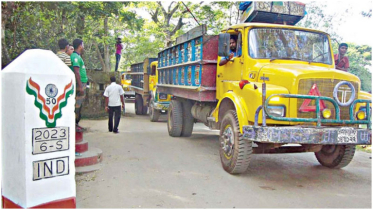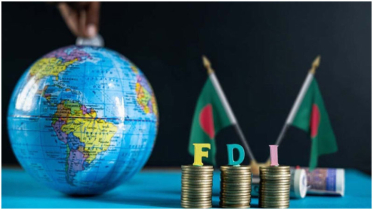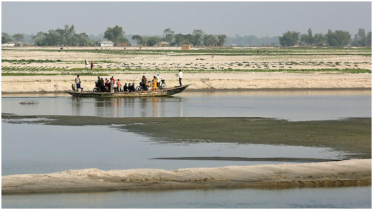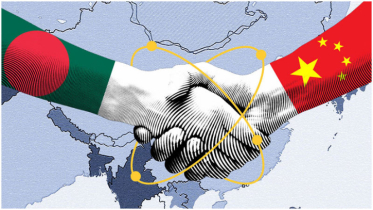Vandalizing Bangladeshi mission in Agartala: A violation of Vienna convention
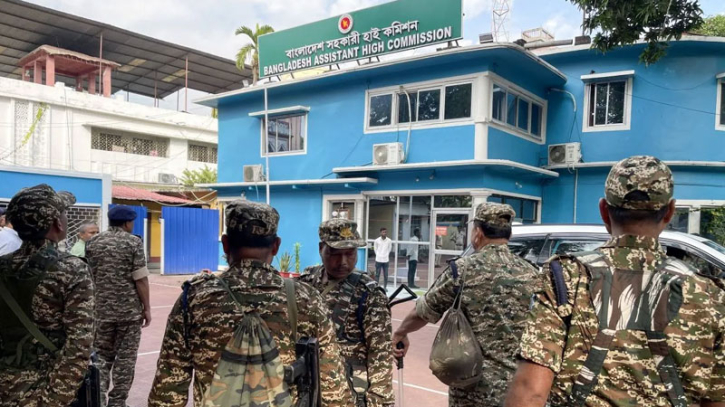
In broad daylight of 2nd December, Bangladesh Assistant High commission was attacked in Agartala, by a group of angry protestors under the banner of the Hindu Sangharsh Samiti, an affiliate of the Vishwa Hindu Parishad (VHP)- a Hindutva based organization. Bangladesh has strongly condemned the attack on its mission in the northeastern Indian state of Tripura, bordering Bangladesh’s Sylhet and Chattogram divisions.
A significant damage has been made as the mob gathered in the premises of the Bangladesh Assistant High Commission in numbers and pulled flag down as well as vandalized the property of Bangladesh mission. This raises concern about Indian adherence to protect a foreign mission, as the local police did not stop the crowd from vandalizing mission’s properties as well as Bangladeshi flag. A series of political repercussions, from igniting broader debates to straining bilateral relations may occur through this incident. Immediately after the attack, the Agartala Assistant High Commission had to suspend the visa process over security concern.
Bangladesh Foreign Ministry expressed in a press release that the attack was preplanned and accused Indian law enforcement agencies of inaction, since similar incident took place on November 28 when a mob burned the national flag of Bangladesh in front of Bangladesh’s Deputy High Commission in Kolkata, violating the basic diplomatic rules recognized worldwide as Vienna Convention on Diplomatic Relations, 1961, which guarantees that foreign diplomatic missions should be protected from vandalism and violence.
Severe protests erupted in Dhaka University’s Raju Memorialand many other places in Bangladesh, as convener of the Anti-Discrimination Student Movement announced march over attack on Bangladeshi mission. Earlier that, the Indian Ministry of External Affairs (MEA) said in a statement that it is taking steps to improve security of all diplomatic missions of Bangladesh in India.
Tension escalated from Chittagong, after the arrest of ISKCON leader Chinmoy Krisna Das on sedition charges, violent clashes erupted and caused killing of a lawyer, Saiful Islam Alif. The Indian mob demanded release of Chinmoy from jail, chanting slogan and urging halt in alleged attack of Hindus in Bangladesh. Whether India is amplifying the “Hindu Minority”repression Bangladesh, there is no presence of a systematicminority repression in Bangladesh. Rather the country is a place of religious harmony.
After all, the properties of Bangladesh mission in Agartala was vandalized, which is a direct violation of diplomatic norms.Bangladesh called upon India for a thorough investigation on the consulate attack, because it is conclusive that the protesters were allowed to aggress into the premises and that required explanations. India, earlier to Bangladesh’s expression, insisted that the incident is deeply regrettable, “Under any circumstances, Diplomatic and consular properties should not be targeted”, it said.
However, an apology is required from Indian top officials for the incident, and not to forget that still now the fled Prime Minister Sheikh Hasina is in India, who is accused of killing of thousands of innocents and holds an arrest warrant from Bangladesh.
While in Dhaka, student of all faiths are protesting against India side by side, as in the country’s Dhaka University, Hindu residential students also manifested against the vandalizing of Bangladesh Mission in Agartala. As a student in Dhaka University’s Jagannath Hall said, "When it comes to the sovereignty of the country, we all stand united."
Delivering a press release on the incident was a bold move by Bangladesh Foreign Ministry, which was unimaginable in the reign of the ousted government. It expressed concern about all the members of the Assistant High Commission who were left ‘with a deep sense of insecurity’ after the attack. Considering the safety and security of the top diplomats as well as non-diplomatic members and their families, the consular service of Agartala High Commission has been suspended until further notice.
Bangladesh maintains a High Commission in New Delhi, India’s capital and several Deputy and Assistant high commissions in major cities like Kolkata, Mumbai, Chennai, Guwahati and Agartala. Besides, India also has Deputy High Commissions in Bangladeshi cities like Chattogram, Rajshahi, Sylhet, and Khulna besides the main High Commission in Gulshan, Dhaka. While concern remains on the security of Bangladeshi missions in India, Bangladesh has increased its security for protecting Indian missions present in Bangladesh. For example, immediately after the incident, security had been eightfold in Chattogram, and all necessary measures had been taken around the Indian High Commission in Dhaka.
Md Touhid Hossain, Adviser for Foreign Affairs to the Interim government of Bangladesh accused Indian media of spreading misinformation about the status of Hindus in Bangladesh. Addressing foreign diplomats, he assured that minority rights and security were being upheld, dismissing allegations from Indian side as politically motivated.
Especially when from Mamata Banarjee, Chief Minister of West Bengal, the Indian state which shares close cultural and linguistic ties with Bangladesh, is seeking UN peacekeeping mission in Bangladesh as well as Narendra Modi’s personal intervention into Bangladesh over the minority rights. No doubt, this is a politics of vote from Mamata. As she wants to secureher vote bank by making populist claims, where no such minority rights violation has been traced in Bangladesh. As such playing with “minority right” card has become a key issue in neighboring India for populist speeches. Foreign Adviser Touhidwas surprised at Mamata made such remarks. He does not think that the remarks were politically right for her.
In response to the escalating tensions in both Bangladesh and India over the concern, Chief Adviser Dr. Muhammad Yunuscalled for meetings to declare national unity among the nation.
Foreign Adviser Touhid Hossain has alleged a "global campaignby a certain quarter" about issues related to religious minorities in Bangladesh. India is flaring up the minority issue and takes it in the wrong direction. In Assam’s Karimganj district, recently renamed as “Shrivumi”, people are seen marching towards Bangladesh and intends to enter into Bangladesh, protesting at alleged atrocities against Hindus in Bangladesh, things which has never happened in real time except in disinformation, whichis a serious alarming issue for Bangladesh’s national security.
In reaction to the demonstrations and threats to cross into Bangladesh, Foreign Adviser said he considers it just a provocation until they enter, “The BSF prevented them, so they could not enter Bangladesh. But if people want to cross the border, legal action will be taken.” He also commented on Chinmoy Das’s recent arrest and denial of bail, saying, “Chinmoy was arrested on specific charges, not to do anythingwith his faith”, “None should face discrimination for their religious identity, and we will ensure it,” he added.
Moving forward, Bangladesh should not allow any communal violence in the country. The country should also refrain from any provocative and reactive actions that would provide the Hindutva activists to amplify their ‘false’ narrative. As Foreign Adviser Md Touhid Hossain said Bangladesh seeks a "normal and friendly" relationship with India, protecting mutual interests as well as emphasizing constructive dialogue with the neighboring country would be beneficial in this regard.
In return, India should also not shy away from the fact that they have chosen a wrong policy on Bangladesh failing to accept the reality. Indian Ambassador to Dhaka, Pranay Verma stated after the incident that the bilateral relation is of multidimensional and should not be judged over single matter. Going beyond the rhetoric, India should acknowledge that this ‘single issue’ now has become the driving factor in the direction of the bilateral relations. A continuous ignoring of the reality would lead the relation to a point of no return- which is equally dangerous for both nations.
Writer: Md. Abu Saim is a former student of International Relations at Dhaka University and also completed his MSS in International Political Economy. Currently, he is employed as a humanitarian worker.
Source: Fresh Angle International
.png)

